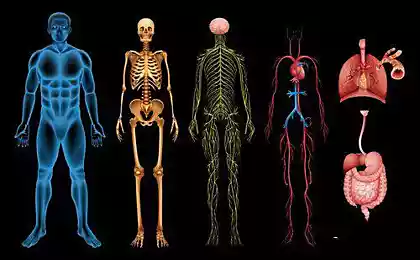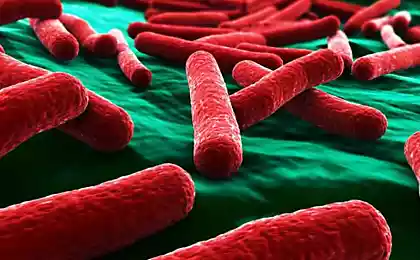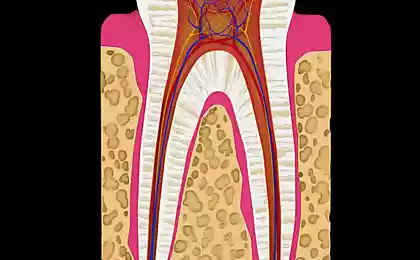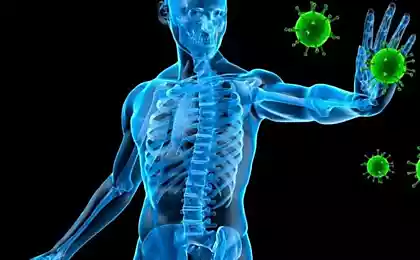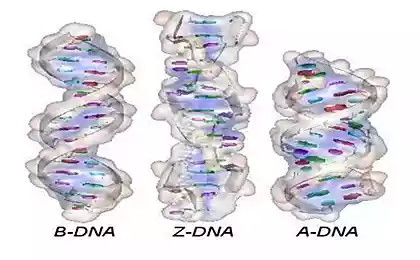512
Helicobacter pylori: bacteria that infected 60% of the population of the globe
Previously in medicine it was thought that the microorganism is able to survive in acidic, saline environment of the stomach does not exist in principle. But then the doctors were unaware of the existence of Helicobacter. Helicobacter pylori was discovered only in 1979, scientists from Australia by Robin Warren. Together with a scientist colleague Dr. Barry Marshall the "pioneers" managed to grow the bacterium Helicobacter in the laboratory. Then they just assumed that she is the culprit of gastritis and stomach ulcers, not poor diet or stress, as previously thought. In an attempt to confirm the correctness of her guess, Barry Marshall experimented on himself by drinking the contents of the Petri dishes, which were cultured for Helicobacter pylori. After a few days the scientist showed gastritis. To cure it has been taking for two weeks metronidazole. And already in 2005 the authors of this discovery, the scientists behind the discovery received the medicine Nobel prize. The whole world has recognized that ulcers and gastritis, with all the consequences and co-morbidities appear because of Helicobacter.
Where do you get Helicobacter?
Helicobacter and adapted without problems to survive in the human body. The bacterium has flagella, thanks to which quickly move the thick mucus that lines the stomach wall. Moreover, it produces urease, a special enzyme that neutralizes hydrochloric acid and comfortable for bacteria environment. The occurrence of gastritis occurs due to the release of bacteria toxins in the first place, and secondly, dissolution of protective mucus, resulting in food enzymes and hydrochloric acid fall on the mucous membrane of the stomach, eroding it to ulcers.
Helicobacter, as it turns out, is a very common infection. Scientists believe that its carriers is 2/3 of the population of the entire planet. Least of all people she infected with H. pylori infection in the United States and Western Europe. The reason is that there the most widely used antibiotics, combined with high standards of sanitation and hygiene.
The discovery of the bacterium Helicobacter pylori has become a truly revolutionary, because it dispelled the myth that bacteria can't survive in the acidic gastric environment, and found that this bacterium is the cause of most known diseases of the stomach. In addition, because these bacteria means to prevent and cure ulcers, gastritis and other diseases of the stomach and intestines can the antibiotic composition of the restorative therapy.
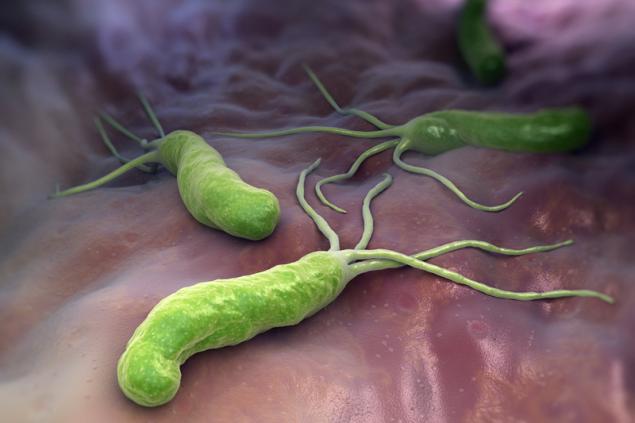
Features of Helicobacter pylori infection
The first feature: bacteria resist the extremely acidic gastric environment. Due to the high acidity, bacteria and viruses in the stomach are dying, at least the majority of them. Helicobacter resist acidity. Thus, the bacterium Helicobacter attached to the walls of the stomach and can remain there for many decades to full "comfort and safety".
The second feature of the bacterium is the main cause of disease arising in the stomach and duodenum. Multiplying, the bacteria just destroys the cells of the stomach. Namely, chronic inflammation and gastritis leads to the release of bacteria harmful substances, toxins. The result of the weakening of the gastric mucosa, duodenum appear erosions and ulcers, and increases the risk of stomach cancer. It is known that the bacterium Helicobacter is the main cause of gastric cancer in humans.
The third feature: Helicobacter pylori infection is destroyed by treatment of Helicobacter pylori infection with antibiotics and drugs that regulate the level of acidity in the stomach.
Causes
Air Bacteria Helicobacter pylori can not live, they die. H. pylori infection is transmitted only through the saliva and mucus upon contact of the carrier bacteria and a healthy person. Often, the infection occurs as a result of the common use of personal hygiene products, dishes, from kissing or from mother to child. That is, the risk of infection enters the family, roommates or friends of a person who is a carrier of Helicobacter pylori. Getting into the stomach through the esophagus of a person under the influence of hydrochloric acid bacterium is not killed. Then all of the already known scheme: the bacterium lives, reproduces, develops Helicobacter pylori infection, poisons the body and destroys the tissues of the stomach and intestines, impairs normal functioning. Further, inflammation of the gastric mucosa, the development of gastritis, ulcers, the risk of gastric cancer and other equally dangerous diseases.
Symptoms
Symptoms indicating possible infection, manifested as frequently recurring pains in the stomach. Usually the pain comes on an empty stomach, and calms down after a meal. This is evidence on the walls of the stomach erosions and ulcers that have formed as a result of vital activity of bacteria. Also the symptoms of Helicobacter pylori infection can manifest as heartburn, worse over time, heaviness in the stomach, poor digestibility of animal food, nausea and vomiting. If a person has these symptoms of Helicobacter pylori infection, he should go through a test analysis Helicobacter pylori, diagnostics implies the use of serum biochemical reactions, which determine the content of immunoglobulins. Also diagnosis using the breath test and endoscopy.
Treatment of helicobacteriosis
Treatment for Helicobacter pylori provides a comprehensive therapy aimed at the elimination of harmful microorganism Helicobacter in the stomach. Treatment of Helicobacter pylori infection by destroying bacteria is a prerequisite to the healing of erosions and ulcers began. Prevent and cure ulcers, gastritis and other diseases of the stomach and intestines related to the life of bacteria can the antibiotics in the composition of the restorative therapy. Treatment of Helicobacter pylori infection is carried out with antibiotics and drugs that regulate the level of acidity in the stomach. You should know that not all carriers of this bacterium experience symptoms of the disease. Bacteria is a very long time can not Express themselves absolutely nothing, remaining inactive in the stomach wall.
To development, the intensification of Helicobacter pylori infection largely affects the way of life that leads people: poor diet, alcohol abuse, Smoking and frequent nervous tension, weakening the protective functions of the organism. Therefore, the most important element is prevention of infection by Helicobacter pylori. Observe elementary rules of hygiene: wash before eating hands, do not use the shared and dirty dishes, someone else's personal hygiene. In case of detection of human Helicobacter pylori infection, must be tested in all family members, without exception.
Helicobacter pylori is a dangerous bacteria that can lead to the development of serious diseases. In order to cope effectively with the problem, when the first symptoms of the presence of this bacteria in the body should undergo a special test and, if necessary, to do a comprehensive treatment, which involves combining the achievements of folk and classical medicine.published
Author: Alena Bykova
P. S. And remember, only by changing their consumption — together we change the world! © Join us at Facebook , Vkontakte, Odnoklassniki
Source: Alena Bykova
Where do you get Helicobacter?
Helicobacter and adapted without problems to survive in the human body. The bacterium has flagella, thanks to which quickly move the thick mucus that lines the stomach wall. Moreover, it produces urease, a special enzyme that neutralizes hydrochloric acid and comfortable for bacteria environment. The occurrence of gastritis occurs due to the release of bacteria toxins in the first place, and secondly, dissolution of protective mucus, resulting in food enzymes and hydrochloric acid fall on the mucous membrane of the stomach, eroding it to ulcers.
Helicobacter, as it turns out, is a very common infection. Scientists believe that its carriers is 2/3 of the population of the entire planet. Least of all people she infected with H. pylori infection in the United States and Western Europe. The reason is that there the most widely used antibiotics, combined with high standards of sanitation and hygiene.
The discovery of the bacterium Helicobacter pylori has become a truly revolutionary, because it dispelled the myth that bacteria can't survive in the acidic gastric environment, and found that this bacterium is the cause of most known diseases of the stomach. In addition, because these bacteria means to prevent and cure ulcers, gastritis and other diseases of the stomach and intestines can the antibiotic composition of the restorative therapy.

Features of Helicobacter pylori infection
The first feature: bacteria resist the extremely acidic gastric environment. Due to the high acidity, bacteria and viruses in the stomach are dying, at least the majority of them. Helicobacter resist acidity. Thus, the bacterium Helicobacter attached to the walls of the stomach and can remain there for many decades to full "comfort and safety".
The second feature of the bacterium is the main cause of disease arising in the stomach and duodenum. Multiplying, the bacteria just destroys the cells of the stomach. Namely, chronic inflammation and gastritis leads to the release of bacteria harmful substances, toxins. The result of the weakening of the gastric mucosa, duodenum appear erosions and ulcers, and increases the risk of stomach cancer. It is known that the bacterium Helicobacter is the main cause of gastric cancer in humans.
The third feature: Helicobacter pylori infection is destroyed by treatment of Helicobacter pylori infection with antibiotics and drugs that regulate the level of acidity in the stomach.
Causes
Air Bacteria Helicobacter pylori can not live, they die. H. pylori infection is transmitted only through the saliva and mucus upon contact of the carrier bacteria and a healthy person. Often, the infection occurs as a result of the common use of personal hygiene products, dishes, from kissing or from mother to child. That is, the risk of infection enters the family, roommates or friends of a person who is a carrier of Helicobacter pylori. Getting into the stomach through the esophagus of a person under the influence of hydrochloric acid bacterium is not killed. Then all of the already known scheme: the bacterium lives, reproduces, develops Helicobacter pylori infection, poisons the body and destroys the tissues of the stomach and intestines, impairs normal functioning. Further, inflammation of the gastric mucosa, the development of gastritis, ulcers, the risk of gastric cancer and other equally dangerous diseases.
Symptoms
Symptoms indicating possible infection, manifested as frequently recurring pains in the stomach. Usually the pain comes on an empty stomach, and calms down after a meal. This is evidence on the walls of the stomach erosions and ulcers that have formed as a result of vital activity of bacteria. Also the symptoms of Helicobacter pylori infection can manifest as heartburn, worse over time, heaviness in the stomach, poor digestibility of animal food, nausea and vomiting. If a person has these symptoms of Helicobacter pylori infection, he should go through a test analysis Helicobacter pylori, diagnostics implies the use of serum biochemical reactions, which determine the content of immunoglobulins. Also diagnosis using the breath test and endoscopy.
Treatment of helicobacteriosis
Treatment for Helicobacter pylori provides a comprehensive therapy aimed at the elimination of harmful microorganism Helicobacter in the stomach. Treatment of Helicobacter pylori infection by destroying bacteria is a prerequisite to the healing of erosions and ulcers began. Prevent and cure ulcers, gastritis and other diseases of the stomach and intestines related to the life of bacteria can the antibiotics in the composition of the restorative therapy. Treatment of Helicobacter pylori infection is carried out with antibiotics and drugs that regulate the level of acidity in the stomach. You should know that not all carriers of this bacterium experience symptoms of the disease. Bacteria is a very long time can not Express themselves absolutely nothing, remaining inactive in the stomach wall.
To development, the intensification of Helicobacter pylori infection largely affects the way of life that leads people: poor diet, alcohol abuse, Smoking and frequent nervous tension, weakening the protective functions of the organism. Therefore, the most important element is prevention of infection by Helicobacter pylori. Observe elementary rules of hygiene: wash before eating hands, do not use the shared and dirty dishes, someone else's personal hygiene. In case of detection of human Helicobacter pylori infection, must be tested in all family members, without exception.
Helicobacter pylori is a dangerous bacteria that can lead to the development of serious diseases. In order to cope effectively with the problem, when the first symptoms of the presence of this bacteria in the body should undergo a special test and, if necessary, to do a comprehensive treatment, which involves combining the achievements of folk and classical medicine.published
Author: Alena Bykova
P. S. And remember, only by changing their consumption — together we change the world! © Join us at Facebook , Vkontakte, Odnoklassniki
Source: Alena Bykova
Millet can replace rice and potatoes in a healthy diet
The use of internal medicinal properties of plants for su-Jok of CEMENTERIO






